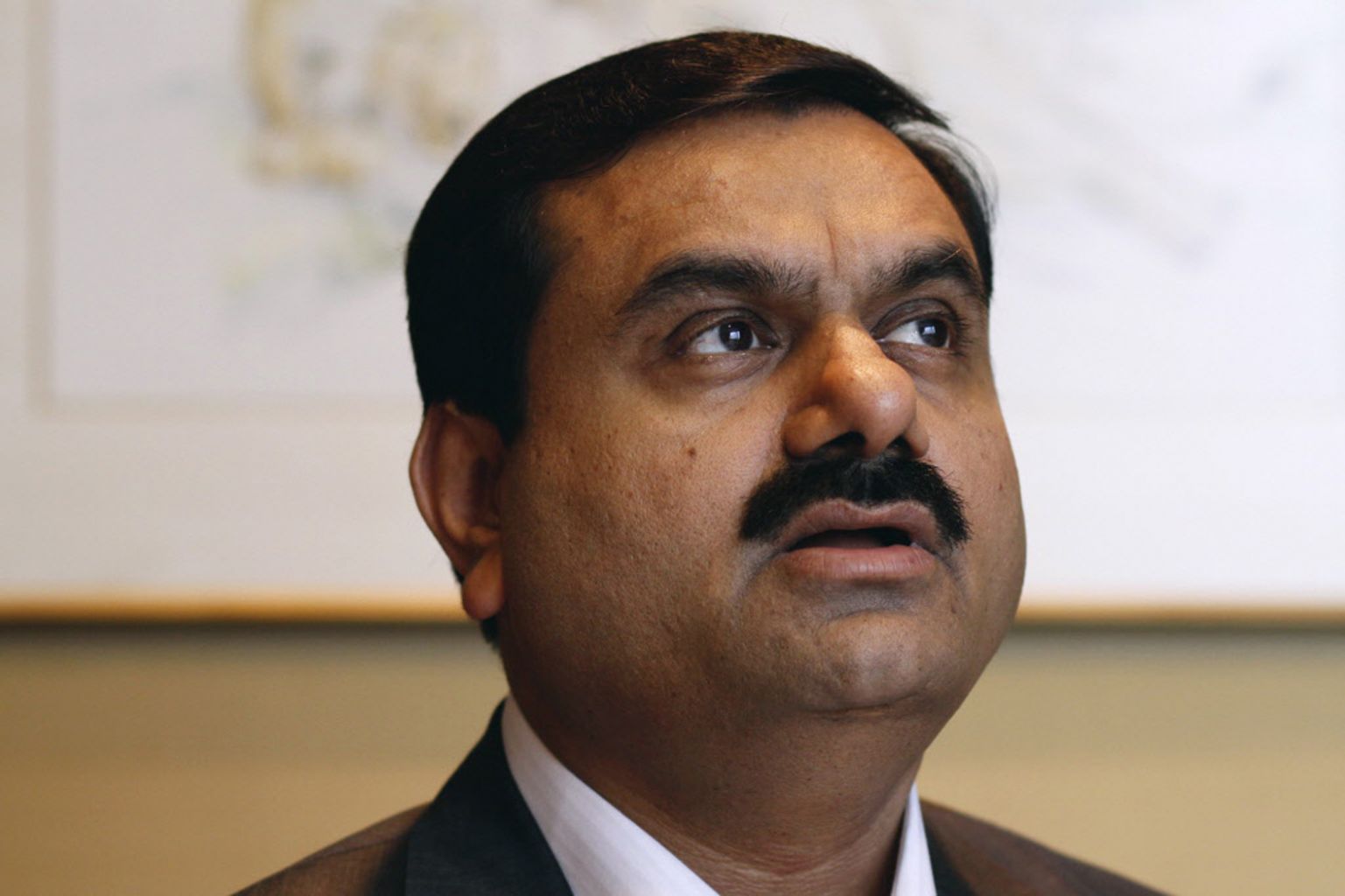Indian coal tycoon emerges as country's infrastructure king
Gautam Adani's ambitious plans to diversify get boost from PM Modi, investors
Sign up now: Get ST's newsletters delivered to your inbox

Mr Gautam Adani is now India's second-wealthiest person, with a net worth of US$56 billion (S$75.4 billion).
PHOTO: BLOOMBERG
MUMBAI • After spending two decades building a business empire centred on coal, Indian billionaire Gautam Adani is now looking beyond the fossil fuel to cement his group's future. His ambitious plans are getting a boost from Indian Prime Minister Narendra Modi.
Mr Adani has emerged as India's infrastructure king, diversifying from mines, ports and power plants into airports, data centres and defence - sectors Mr Modi considers crucial to meeting India's economic goals. Investors are rewarding the pivot, betting that the tycoon's strategy of dovetailing his interests with the government's development programme will pay off.
The group's six listed units added a combined US$79 billion (S$106.4 billion) to their market value in the past year at the height of the Covid-19 pandemic, capping the best 12 months in their history.
That is the most after the nation's two biggest business empires, Tata Group and Reliance Industries, which is led by Mr Mukesh Ambani.
Blue-chip names including French oil giant Total and US private equity firm Warburg Pincus have poured money into Mr Adani's companies.
In less than two years, Mr Adani has gained control of seven airports and almost a quarter of India's air traffic. He has unveiled plans to boost his renewable energy capacity almost eightfold by 2025, positioning himself to benefit as the government debates ambitious climate targets that would cut net greenhouse gas emissions by mid-century.
Last week, he won a contract to co-develop a port terminal in Sri Lanka, a neighbour India is courting to check China's influence in the region. And Adani Enterprises signed a pact last month with Edge- ConneX to develop and operate data centres across India.
''Mr Adani is politically savvy and invests in mostly sensible, longdated infrastructure projects'' broadly tied to government priorities, said Mr Tim Buckley, director of energy finance studies for Australia and South Asia at the Institute for Energy Economics and Financial Analysis. ''So long as India sustains strong growth, the group is likely to prosper under his leadership and witness a surge in global investor interest.''
At a JPMorgan India Summit last September, Mr Adani said the focus on India's infrastructure forms ''the core of our 'nation building' philosophy'', and that the group has created thousands of jobs and delivered unprecedented value to its shareholders.
After starting out as a commodities trader in the late 1980s, Mr Adani is now India's second-wealthiest person, with a net worth of US$56 billion. He has added US$50 billion to his fortune in the past year, about US$5 billion more than Mr Ambani, Asia's richest man, according to the Bloomberg Billionaires Index. Mr Adani's net worth has risen more than any other billionaire's this year.
He shot into the international limelight when he won a coal project in Australia in 2010. Ever since, he has come under attack from climate activists.
Back home, Mr Adani has been at the centre of another controversy.
Opponents of the powerful leader say his success is largely due to his closeness to Mr Modi - an allegation denied by the tycoon.
Critics point to reports that the federal government under Mr Modi relaxed airport bidding rules, helping Mr Adani's group qualify despite having shown no prior experience running an airport.
A lease the conglomerate won in the southern state of Kerala faced a challenge in court, with a local minister last year calling the winning bid ''an act of brazen cronyism''.
The Adani Group rejected those claims. The nation's Supreme Court is still hearing the dispute.
DEFT REVAMP
Buoyant credit markets helped fuel Mr Adani's expansion. Adani Ports and Special Economic Zone sold a 10-year dollar bond in January at a 3.1 per cent coupon, compared with 4.375 per cent in June 2019.
Adani Green Energy signed a US$1.35 billion loan facility last week from 12 banks, one of the biggest renewable loans in Asia.
While Credit Suisse Group estimates that the group's gross debt jumped 29 per cent to US$24 billion in the six months until September from a year earlier, a spin-off and ring-fencing of units in 2015 has provided comfort to creditors.
The biggest threat Mr Adani faces is in coal. Financial institutions globally are increasingly under pressure to avoid funding energy projects using the dirtiest fossil fuel. Adani Enterprises is India's biggest importer and also a contract miner for 101 million tonnes annually.
Mr Adani's new ventures face far fewer headwinds. He has plans for defence manufacturing, heeding Mr Modi's calls to help cut reliance on expensive imports. He is also scaling up production of solar panels and modules, again under Mr Modi's ''Make in India'' appeal.
''All told, Adani Group is doing all the right things,'' said Mr Chakri Lokapriya, chief investment officer at TCG Asset Management in Mumbai. ''In the coming years, Adani Group will own controlling stakes in critical gateways to infrastructure, power generation and information technology.''
BLOOMBERG

